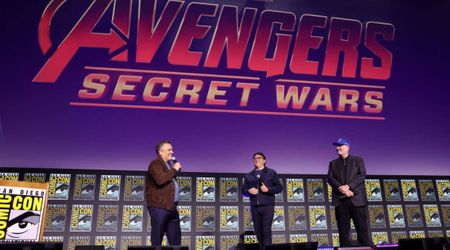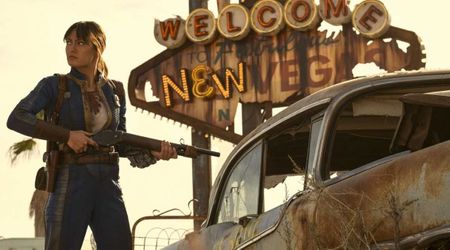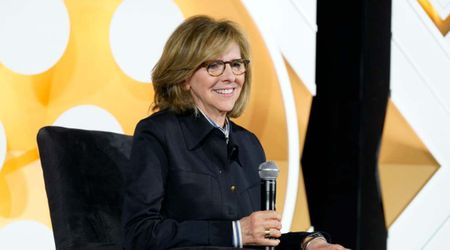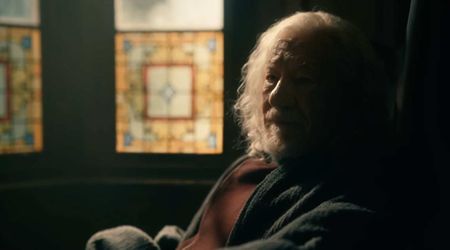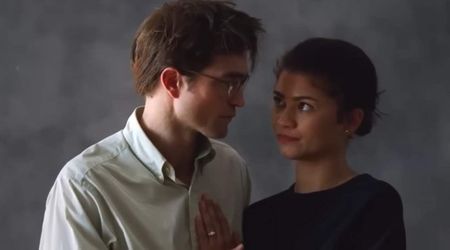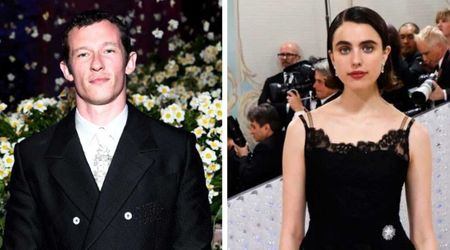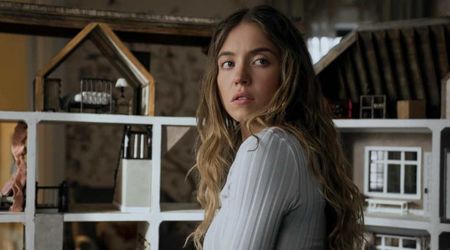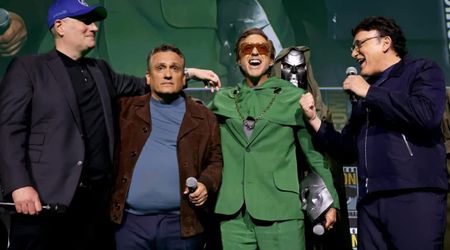‘The Trial of the Chicago 7’: Who was the real Jerry Rubin? Real saga of activist once dubbed ‘pot-smoking hippie’

Jerry Rubin — a flamboyant 1960s radical who was once dubbed “annoying pot-smoking hippie” paved a new path to be a multimillionaire businessman in the 1980s — and now his life will be blazoned across Aaron Sorkin's ‘The Trial of the Chicago 7’.
Alongside other organizers of the protest — including Abbie Hoffman, Tom Hayden, David Dellinger, Rennie Davis, John Froines and Lee Weiner — the Chicago Seven were charged with conspiracy to incite a riot. ‘Succession’ actor Jeremy Strong plays him in the film and notes, “In this story, Jerry really is the militant.” The 41-year-old explains, “He started out in Berkeley, laying down in front of troop trains, stopping them from going to Oakland.”
But, according to Strong, like most of the other defendants in the trial, Rubin had a pretty typical American upbringing. “These guys all came out of middle-class homes,” he says. “They kind of rejected the middle-class mores they saw in the country and wanted to kind of drop out, drop out of the culture.” “Abbie and Jerry — their goal was to have a festival of life in opposition to what was called the festival of death happening down at the convention,” he says.
Rubin, like Hoffman, was also keenly aware of the power of publicity. “They were the longhaired, tie-dyed, drop out, turn-on people,” says Sorkin. “They had an enormous following. They were rock stars in their day.” Producer Stuart M Besser agrees, “They marketed themselves before marketing yourself was a thing. If they were around today they would have had 10 million followers on Twitter.”

Who was Jerry Rubin?
Son of a truck driver who later became a Teamsters' union official, Jerry was born in Cincinnati, Ohio. After attending Cincinnati's Walnut Hills High School, he was a University of California at Berkeley dropout who soon became an activist in support of civil rights for African Americans.
At a young age, Rubin's parents died and he had to fend for his younger brother, Gil, who was 13 at the time. At first, he planned to take him to India to teach him about the world but after a threat from relatives, he headed towards Israel and settled in Tel Aviv. Over there, Rubin worked in a kibbutz — a collective community for agriculture. Before getting back to activism, he visited Havana and read up on the Cuban revolution.
Did you know Rubin ran for mayor of Berkeley? On a ticket to oppose the Vietnam War, support Black power and the legalization of marijuana, he got over 20 percent of the vote. Post that, he turned all his attention to political protest — first lobbying against a local grocer to hire African Americans.
Alongside his partner-in-crime Abbie Hoffman, the Yippie leader known for his trademark headband lived his years “burning draft cards, liberating the administration building, and, of course, scrawling revolutionary slogans on the walls in spray paint.”

What happened to him after the trial?
In 1970, he said, “Smoking pot makes you a criminal and a revolutionary. As soon as you take your first puff, you are an enemy of society.” In January 1973, he held a post-election party at his place in New York which was attended by John Lennon and Yoko Ono. An early investor in Apple computers, he was a multimillionaire by the end of the decade. In 1978, he married Mimi Leonard and the couple had two children together.
However, the fervor to fight for social and emotional values of '68 still persisted. In the 1980s, he embarked on a debating tour with Hoffman titled “Yippie versus Yuppie”. Rubin argued that activism was hard work and that the abuse of drugs, sex, and private property had made the counterculture “a scary society in itself."

In his book 'DO IT!' he wrote, “And we were motherf**king bad. We were dirty, smelly, grimy, foul, loud, dope-crazed, hell-bent and leather-jacketed. We were a public display of filth and shabbiness, living in-the-flesh rejects of middle-class standards.” Later, his book read: “How can you separate politics from sex? It's all the same thing: Body politic,” adding, “Young Whites were blowing middle-class Amerika out of their minds and bodies with drugs, sex, music, freedom, living on the streets. They were filling the jails. They were not in the revolution merely to support Blacks, but were dropouts of White society fighting for their own freedom.”
Rubin also appeared on Saturday Night Live's second episode of its first season in a sketch of a fake commercial for wallpaper featuring protest slogans from the 1960s and 1970s such as “Make Love, Not War”, “Off The Pig!”, “Give Peace A Chance”, “Hell No, We Won't Go!” Bob Dylan’s 'Blowin’ in the Wind' played as a bearded Jerry Rubin stepped in front of a wall covered with graffiti-patterned wallpaper and ended it by parodying a radical slogan as “Up against the wall-paper, posters!”
“In 1991, he and his family moved to Los Angeles,” according to an Observer.com profile of him, “where he became a successful independent marketer for a Dallas-based firm that sold a nutritional drink called Wow!, made with kelp, ginseng and bee pollen. Ironically, Bobby Seale became one of his salesmen.” He divorced his wife in 1992.

How did he die?
On November 14, 1994, a tragic accident took Rubin's life. The former Yippies leader was trying to cross Wilshire Boulevard, in front of his penthouse apartment in the Westwood area of Los Angeles, California on a Monday evening. Amid heavy traffic, vehicles were moving in each direction in all three lanes and Rubin escaped one motorist but a second driver, immediately behind the first, struck him. He was immediately taken to the UCLA Medical Center.
At the time of his death, there was much confusion. A hospital spokesman said the cause was cardiac arrest, but he had been unconscious and in critical condition since he was hit on the night while jaywalking across Wilshire Boulevard. His former wife, Mimi Leonard Fleischman, said that he had suffered multiple injuries. It was later confirmed that he died in the hospital of a heart attack two weeks later. He was 56.
Fellow Chicago Seven member and friend Tom Hayden said after Rubin's death: “He was a great life force, full of spunk, courage and wit. I think his willingness to defy authority for constructive purposes will be missed. Up to the end, he was defying authority.”
'The Trial of the Chicago 7' will start streaming on Netflix this October 16, 2020.


